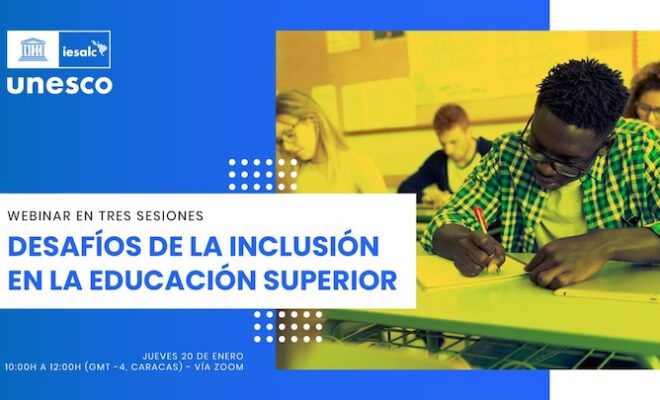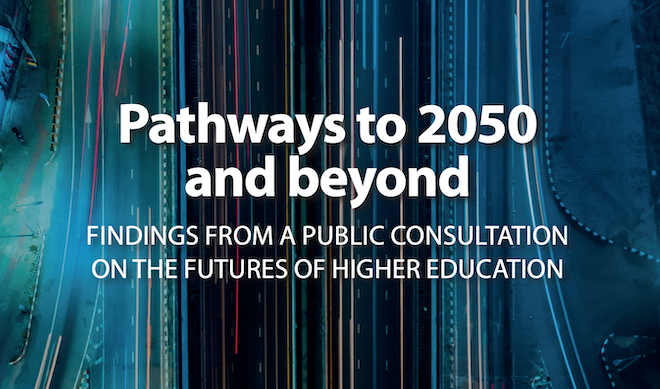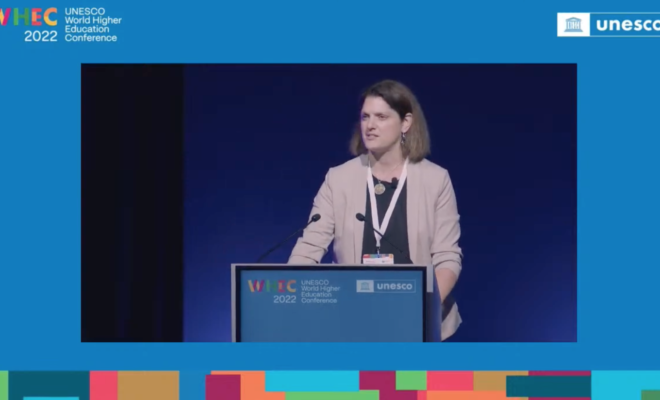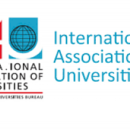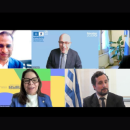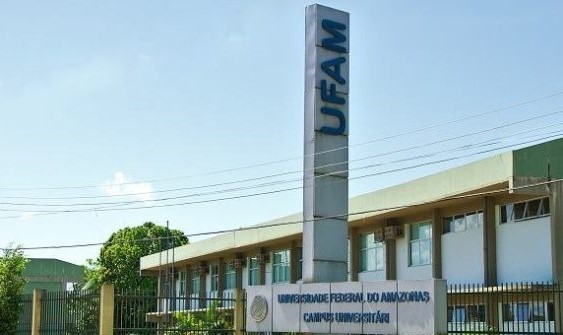Transforming the futures of higher education
Opening words: Sobhi Tawil, Director, Future of Learning and Innovation. Panelists: Mpine Makoe, Commonwealth of Learning Chair in Open Education Practices/ Resources and a Research Professor in Open Distance eLearning at the University of South Africa (UNISA); Chanita Rukspollmuang, Vice President and Dean of Graduate School of Education, Siam University (SU), Bangkok, Thailand; and the students Hefang Chen (China) and Victor Léon (Venezuela). Moderatora: Emma Sabzalieva, Dana Abdrasheva, Eglis Chacón, Luz Gamarra Caballero, Bosen Lily Liu (UNESCO IESALC). The dialogue was based on the following questions: What biggest challenges do you see for society in the future; How to solve those challenges? And Role […]
©
6 June, 2022

Opening words: Sobhi Tawil, Director, Future of Learning and Innovation.
Panelists: Mpine Makoe, Commonwealth of Learning Chair in Open Education Practices/ Resources and a Research Professor in Open Distance eLearning at the University of South Africa (UNISA); Chanita Rukspollmuang, Vice President and Dean of Graduate School of Education, Siam University (SU), Bangkok, Thailand; and the students Hefang Chen (China) and Victor Léon (Venezuela).
Moderatora: Emma Sabzalieva, Dana Abdrasheva, Eglis Chacón, Luz Gamarra Caballero, Bosen Lily Liu (UNESCO IESALC).
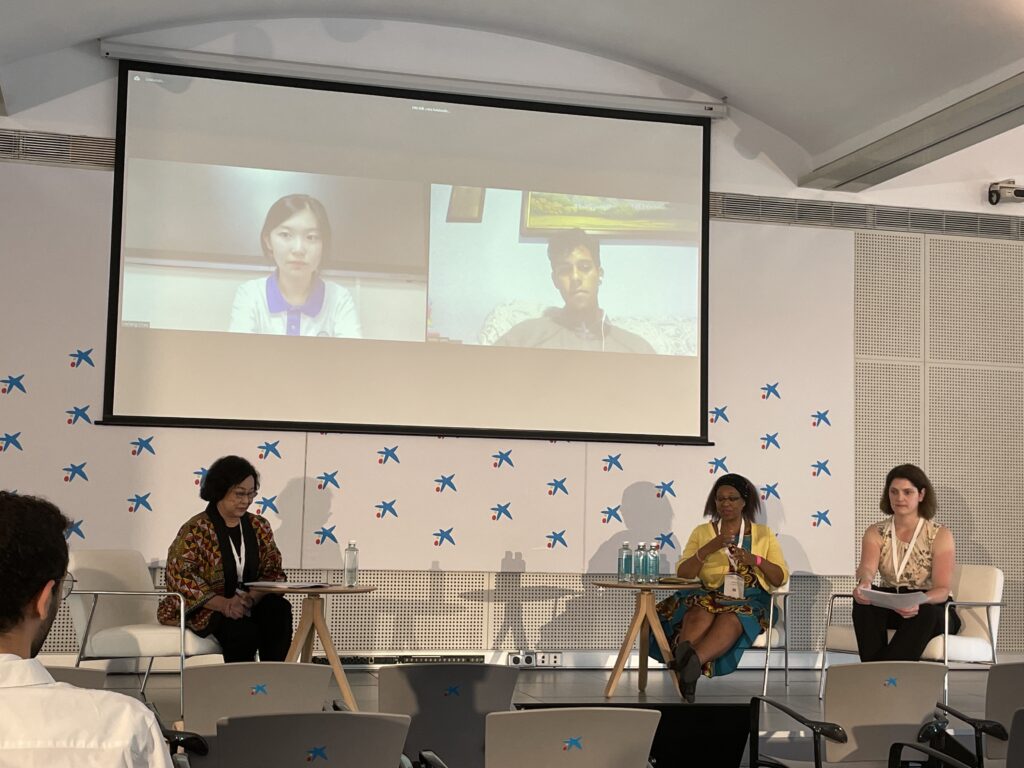
Keypoints
- The dialogue was based on the following questions: What biggest challenges do you see for society in the future; How to solve those challenges? And Role of HE: how HE could be better for future scenarios?
- Globalization, the balance of socio-economic development, and care for the environment are the main challenges. The generation of more diverse learning opportunities ensures quality and equity for personal development.
- A more united humanity is needed to face the problems to come.
- We need to start by having a vision for the future, then creating the steps to reach that common goal. Thinking systemically about how the futures should look like not just your image but also the steps towards that future. This vision will look different for everyone, it is not singular.
- HE can help youth by support their dreams; to do so we might need to redesign the learning modes and how we restructure our institution to make the dreams accomplishable. HEIs need to rethink who they want to nurture for the future, generalists or specialists; the future of the profession and of jobs might change, therefore needing for life learning skills.
- Higher education can provide a roadmap for personal development that leads to better jobs and opportunities; it is necessary to improve the internationalization of HE, teachers capacities, and reform HE, reconsidering its purpose, allowing students to learn and reflect internally, which is crucial for development.
- HE could improve the quality and availability for anyone willing to study, regardless of beliefs, religions, or sexual orientations.
- Exclusions are persistent from the past and a set of disruptions on the horizons when looking at 2050. HE is key to addressing exclusions but also for preparing for the future.
RELATED ITEMS
